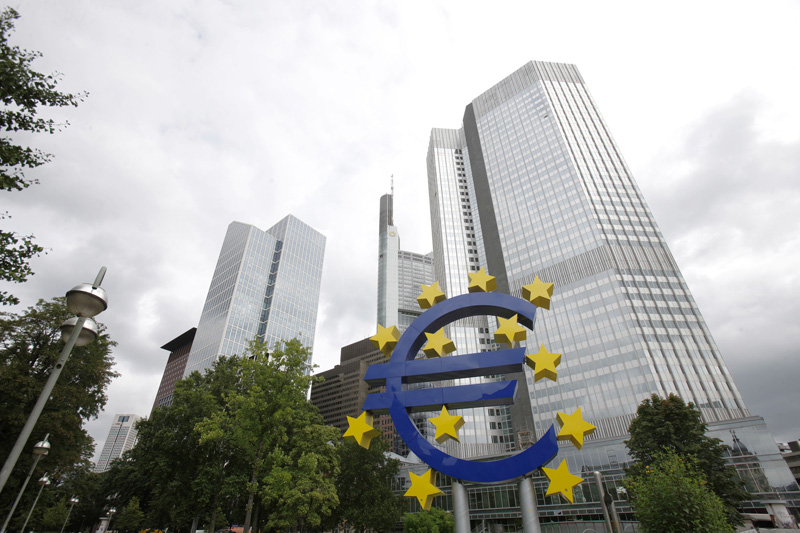 Author: Peter Bofinger, Professor for Monetary and International Economics, Würzburg University, and a Member of the German Council of Economic Experts
Author: Peter Bofinger, Professor for Monetary and International Economics, Würzburg University, and a Member of the German Council of Economic Experts
Editor’s Note: At the China Industrial Finance Forum 2017 on November 17 in Jinan, Professor Peter Bofinger shared his views on the successful experience of the German Economy. Here are excerpts from his speech:
Germany is among the top ten economies in the Global Competitiveness Report provided each year by the World Economic Forum. In this ranking, Germany is especially high in terms of innovation and business sophistication. Germany has one the lowest unemployment rate among the OECD countries and sound public finances compared with other advanced economies.
Why is the German economy so successful? Germany has a specific economic model which was shaped by Ludwid Erhard, the father of Germany’s market economy, after the WWⅡ. His concept can be labeled in his motto that is “prosperity for all”. The idea was that in order for a country to prosper it means that growth has to be shared by all. Growth is important, but growth has to be widely shared.
How can the concept be translated into the German economic system? What really matters when you decide an economy is the relationship of government influence and market force. For example, the Anglo-Saxon countries have low government influence and strong market influence, and in the Scandinavian countries, market influence is relatively small compared with government. Germany is in the middle, not too much government, not too much market, and it is a very balanced approach. It explains why Germany is so successful.
The approach also explains the success of a German model that provides workers with relatively high security. Unemployment protection of workers in Germany is rather high. Good protection of workers is not something negative for growth and it is a positive feature. Workers and employers see themselves as partners; there is no confrontation but cooperation between them. It is really helpful for Germany. The intuitional framework is called co-determination which means the boards of large companies compose of 50 percent of workers’ representatives and 50 percent of shareholders’ representatives. It is important for the solid environment of the German economy, especially in recessions.
Germany also has a special industrial landscape which is rooted in the German history. Until the beginning of 19th century, Germany was composed of independent small states, so Germany is a much decentralized country. It is also reflected in the industrial structure. Germany has many companies spread across the country. Some of them are even global leaders but they are in the countryside. Why can these family companies adjust themselves over time and still remain successful? The family model is very helpful, because they have long-term perspective. They do not depend on short-term capital market, but they have their long-term vision of how to be successful.
What is the financial system for this decentralized structure of Germany? It is called a three-pillar system which is very robust in times of crisis. One pillar is private banks. The second one is savings banks which are owned by the local authorities and spread all over the country. This decentralized banking system really helps small enterprises get the money. In addition, we have corporative banks which are owned by small investors and mainly exist in major cities. Both saving banks and cooperative banks are not listed on the stock exchange. The three pillars make up a stable system, because it is diversified and it is on the local basis that money is provided for the local companies.
Is Germany really so good? The biggest test for the German economy is the German unification in 1990. When the Berlin Wall came down, we suddenly have 60 million East Germans with an economy that was extremely not completive, while the West German economy was really able to provide social security and infrastructure investment. The unification has been successfully managed, which is a sign of strength of the German economy.
The German economy’s strength is obvious if you look at how we manage the globalization. Germany has benefited from the rapid process of globalization because we have the right products that are needed for industrialization. Compared with other advanced economies, the German economy is very open and has successfully managed the challenge of globalization, which shows the strength of our economy.
Germany has been able to retain the manufacturing base and it is still one of the very strong manufacturing economies. Manufacturing matters.
We have also realized the potential of digitalization. We are one of the economies which intensively use industrial robots. Digitalization is not something afraid of and it does not destroy jobs but provide new opportunities.
What are the lessons for China?
Social protection is a blessing not a curse, because it provides motivation for workers. Good labor relations matter for the performance of firms.
Small can be beautiful. Small and medium-sized companies are successful because they are more flexible and transparent and have low transaction and information costs.
Stock markets are good, but we must be careful. What matters for successful economies is long-term vision, while dependence on stock markets nurtures short-termism.
Globalization and digitalization are beneficial for the wealth of nations, but they do not generate prosperity for all. We need government to use them in the right way so as to produce prosperity for all.








